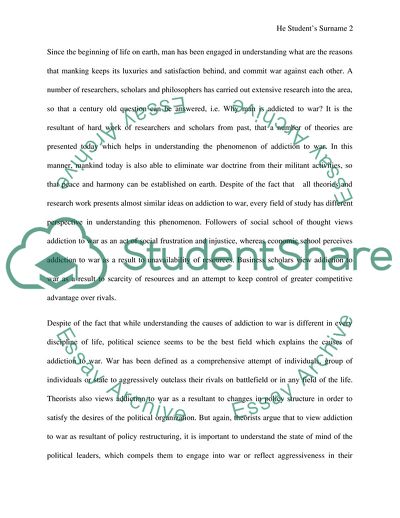Cite this document
(War Is an Addiction Essay Example | Topics and Well Written Essays - 3000 words - 1, n.d.)
War Is an Addiction Essay Example | Topics and Well Written Essays - 3000 words - 1. https://studentshare.org/history/1804939-war-is-an-addiction
War Is an Addiction Essay Example | Topics and Well Written Essays - 3000 words - 1. https://studentshare.org/history/1804939-war-is-an-addiction
(War Is an Addiction Essay Example | Topics and Well Written Essays - 3000 Words - 1)
War Is an Addiction Essay Example | Topics and Well Written Essays - 3000 Words - 1. https://studentshare.org/history/1804939-war-is-an-addiction.
War Is an Addiction Essay Example | Topics and Well Written Essays - 3000 Words - 1. https://studentshare.org/history/1804939-war-is-an-addiction.
“War Is an Addiction Essay Example | Topics and Well Written Essays - 3000 Words - 1”. https://studentshare.org/history/1804939-war-is-an-addiction.


